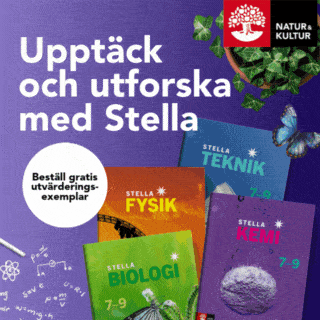Decontextualized language, logic, and algebra: the relationship between Mozambican students’ achievement in school mathematics and their language and social background
Ribas Guambe har skrivit en avhandling som handlar om relationen mellan mocambiquanska elevers prestation i skolan vad gäller matematik och deras språk och sociala bakgrund.
Ribas Guambe
Professor Eva Jablonka, Luleå tekniska universitet
Associate Professor Núria Planas, Universitat Autònoma de Barcelona
Luleå tekniska universitet
2012-11-19
Decontextualized language, logic, and algebra : the relationship between Mozambican students’ achievement in school mathematics and their language and social background
Institutionen för konst, kommunikation och lärande
Decontextualized language, logic, and algebra : the relationship between Mozambican students’ achievement in school mathematics and their language and social background
Researchers in mathematics education have always stressed the relevance of algebra in school mathematics and have produced a wide range of empirical and theoretical outcomes in relation to this field. In addition, the importance of language proficiency for success in school mathematics has been explored in a variety of different contexts, as has been the relation between students’ social class and achievement in mathematics. The language of instruction in Mozambique is Portuguese and the curriculum still promotes a comparatively formal version of school algebra. As all programmes in upper secondary school include mathematics, the students who master it are privileged for careers in tertiary education. There is agreement about the fact that mathematical and scientific language organises meaning in a different way than unspecialised everyday language, and that mathematical language is decontextualized as the things to what it refers can remain unspecified. In the light of these observations, the study set out to explore students’ inclination to engage with decontextualized language in school algebra and logic in relation to their socio-economic and language background in Mozambique. Data were gathered at a school in a semi-rural area for 41 students from grade 10. If compared to conditions of learning at a school in a more affluent area of the country, or with other countries, all the students from the study can be considered as disadvantaged. Yet, there are differences in mathematics achievement as well as in achievement in general within schools in similar areas, which mean that one cannot assume a simple relationship between students’ background and their success. The study focussed on the following two research questions: (i) What are the students’ strategies and preferences when solving problems that are based on school algebra and logical reasoning in relation to students’ socio-economic and language background? In particular: (ii) Are their ways of reasoning linked to their mother tongue or most used language, to their socioeconomic background, or to both? The study adopted a discursive approach to learning mathematics. Based on this theoretical orientation, a test related to school algebra was developed, which included tasks where the students needed to convert a text describing relations between numbers (a word-problem in a mathematical context) into symbolic language, to recontextualize a description of an everyday context from the perspective of school algebra (word-problem in a non-mathematical context) and to interpret algebraic expressions from the viewpoint of an everyday context. Interviews with the students about their solution strategies have been conducted. In addition, some of the students have been asked to solve a contextualised logic task. The data were complemented with information about the students’ academic aspirations and the schools’ expectations, both gained from interviews. As to their general success at school, about two thirds of the students from the study achieve an unsatisfactory average in at least one subject and there are only very few students who have higher marks than just around the threshold in mathematics and other subjects. The students in the school from this study are predominantly speakers of Xichangana. In the background questionnaire they have been asked to state their first language and also to say in which language(s) they mostly communicate outside school or with classmates outside the lessons. The study did not reveal any obvious relation between the students’ success in solving some of the tasks from the test and their marks in mathematics. As to their language background, the results show that the students who use their second language more often than their first language in everyday conversations (independently of the fact whether their first language is Portuguese or not) performed better than main Portuguese speakers in those tasks of the test, which rely on some flexibility in changing perspective and register. A couple of examples from students’ responses in the written test and the discussion in the interviews showed some surface level misunderstandings due to a lack of language proficiency in Portuguese. The students’ solutions to the word-problem that was set in a mathematical context, point to a more intrinsic relation between language an mathematical strategy. Some of the students’ typical misinterpretations of algebraic notations cannot be seen as linked to the particular context of the study, as they resemble findings repeatedly found in international studies, also with monolingual students whose language of instruction is their first language. In order to capture differences in the students’ social and economic background, a questionnaire was constructed in consultation with an expert, and the data were aggregated into three status groups. The outcomes reveal that students from these different groups tended to use different strategies in approaching the tasks. While the high status group preferred formal strategies that are in line with school algebra, the middle group used mixed ones, and the low status group more often drew on informal strategies. During the group work with the logic task, in all groups there was some tendency to discuss the problem from a practical perspective, with a tendency of all girls to almost exclusively include context-related information as arguments. There was some evidence that for some students the language flexibility compensated for the low social status as defined in the study. The outcomes of the study point to a need of further researching the possibilities of developing mathematics registers in languages that are more fundamentally different in grammar and social use in relation to the language of instruction than in contexts where most of the research on bilingualism and code-switching in mathematics classrooms has been carried out.
Relaterade länkar

Juridik
 Gy–Vux
Gy–Vux
Fysisk aktivitet och motorik i förskolan
 Fsk
Fsk


